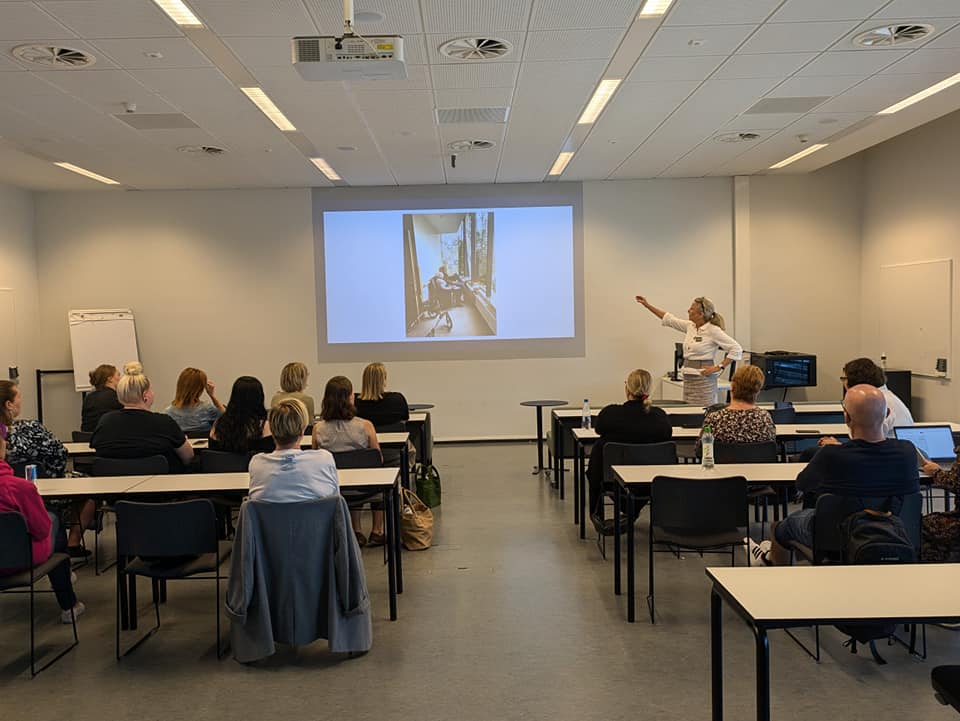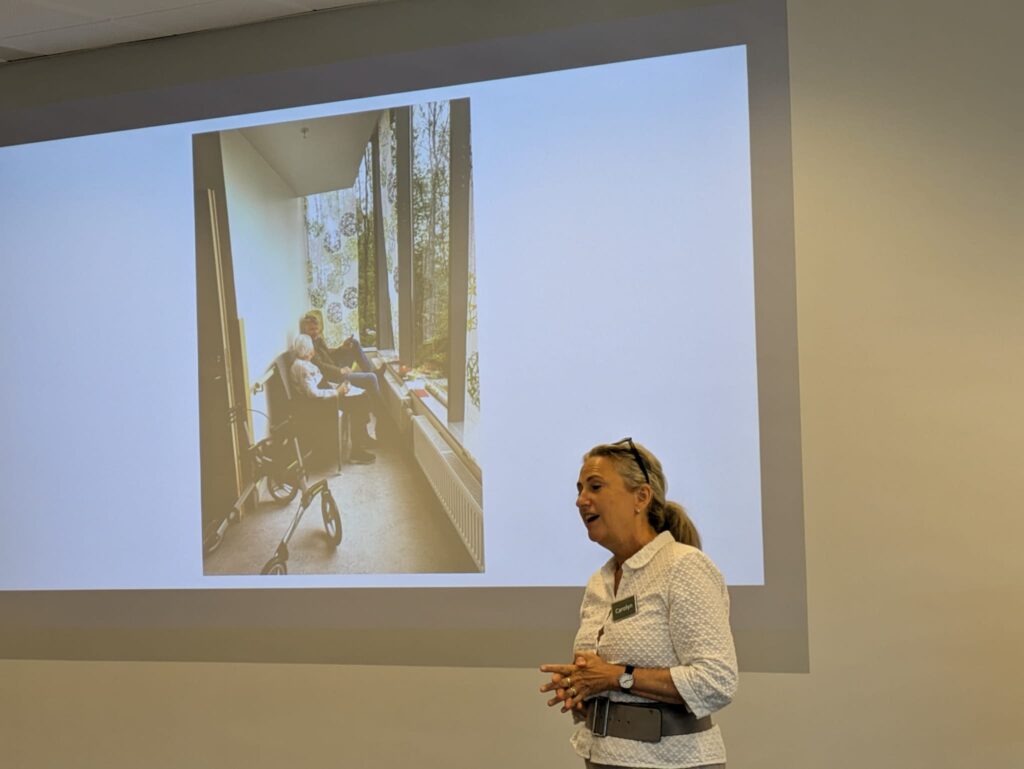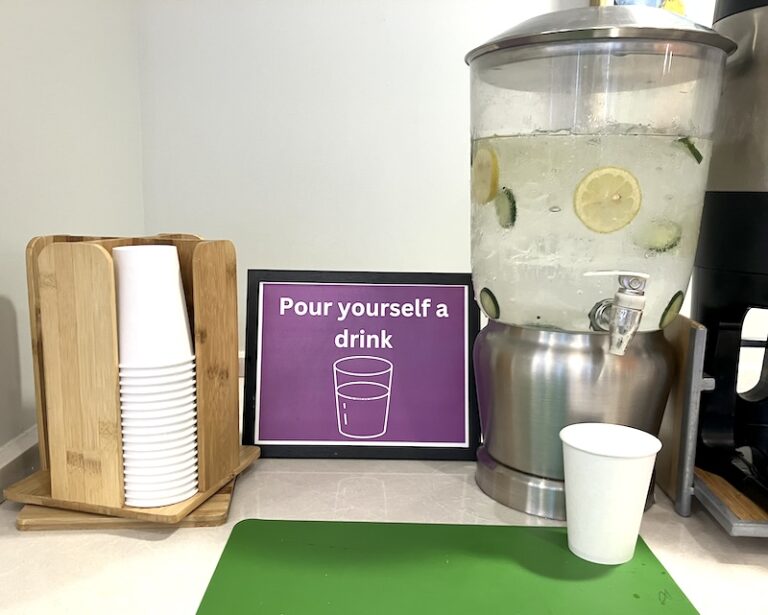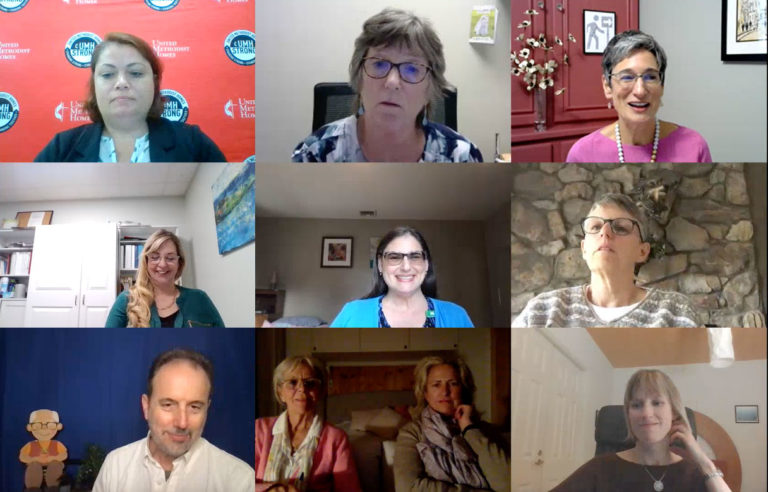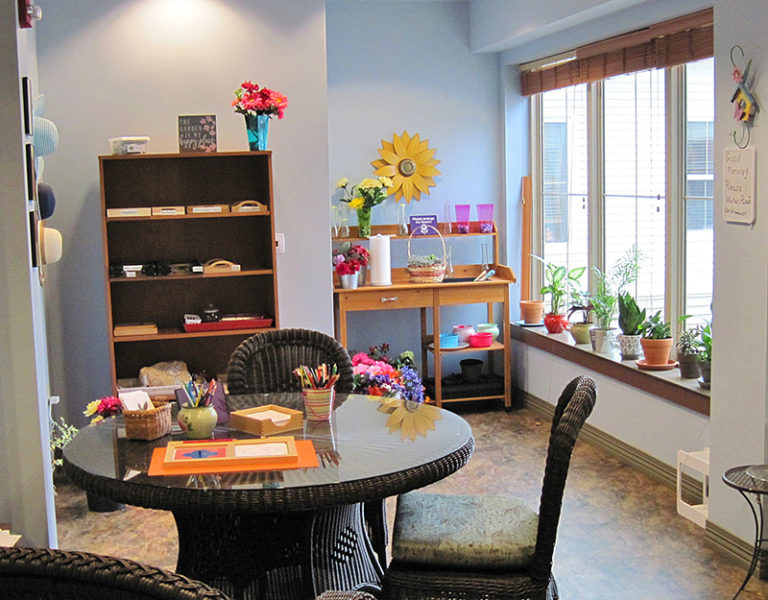Advocating for Montessori Elder Care in Finland: Jennifer’s Fulbright Project
My work through the Fulbright Finland Specialist program in the area of Public/Global Health focused on building staff competencies in person-centered care using the Montessori philosophy of living applied to elders. The Fulbright Specialist project was hosted by MuistiMontessori, the only association in Finland dedicated to applying the Montessori philosophy to individuals living with cogntive impairment.
During my Fulbright appointment, I had the pleasure of participating in a collaborative workshop with Laurea University of Applies Sciences, sharing the Montessori philosophy of elder care with two health care organizations in Helsinki, and offering a public lecture for the community to learn about new approaches to aging.
Collaboration with Laurea University of Applied Sciences
The project began with a kickoff workshop at Laurea University of Applied Sciences, planned and moderated by Marja Iskokangas and Piia Tiilikalio. The workshop was attended by select faculty at Laurea and staff from Wilhelmiina care home and Lauttasaaren Senioritalo.
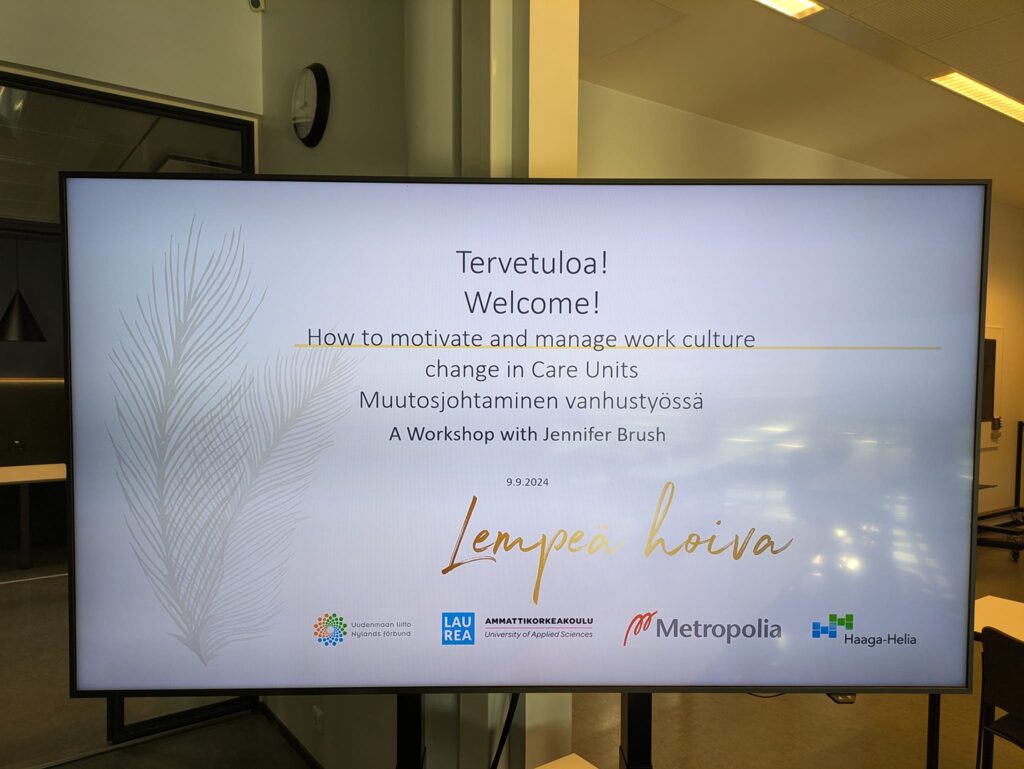
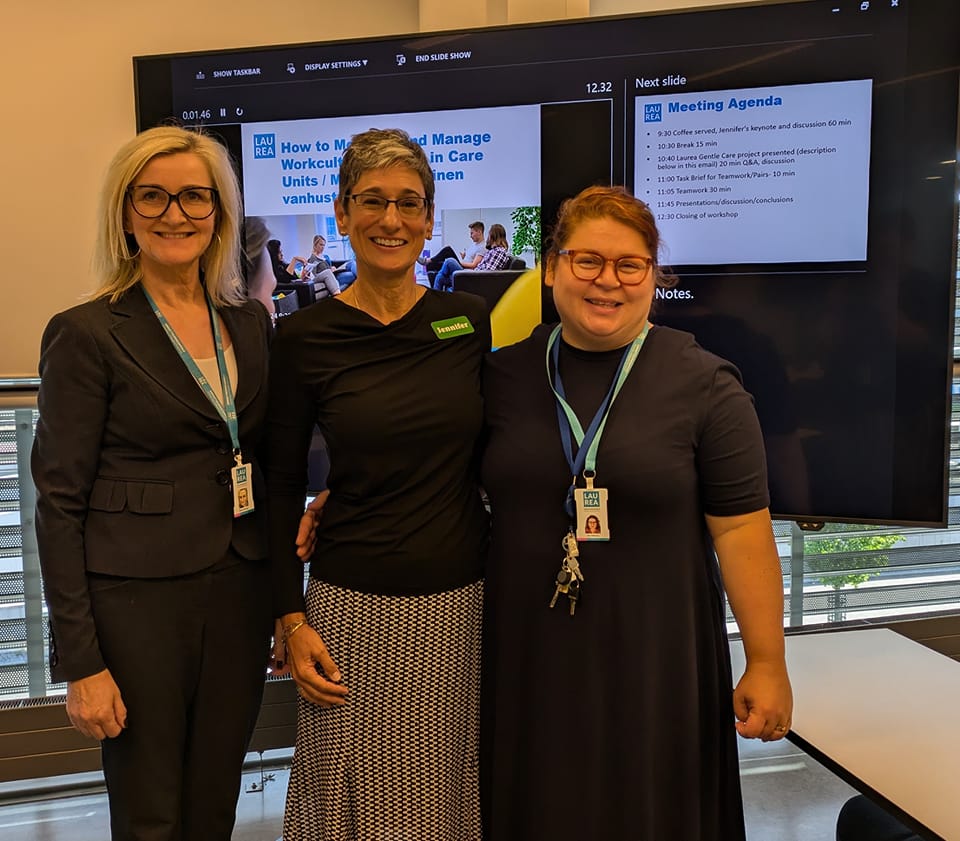
The theme for the workshop at Laurea was How to Manage and Motivate Change in Long-term Care. My keynote focused on the need to move away from a medical and institutional model of care for elders, to a social model that empowers elders to live a life with meaning and purpose. I spoke about why culture change can be so difficult in healthcare and provided suggestions about how leaders can more effectively communicate their vision for change, form effective teams, model and support the new culture, and celebrate the successes while working toward sustaining the new culture. Piia Tiilikalio from Laurea spoke about a project she manages called Gentle Care, which promotes a variety of nonpharmacological approaches to dementia care. After the lectures, participants worked together in small groups to brainstorm positive solutions to address five common culture change challenges in long-term care.
In the afternoon, I was joined by Carolyn Magnussen from Montessori Care in Norway, one of the collaborators from a Fulbright Specialist project I completed two years ago in Norway. She shared the progress she has made introducing Montessori for elders to a number of care homes in Norway, and presented examples of the beautiful materials she has made to support engagement and independence. I concluded the day by sharing a step-by-step process for successful implementation of a Montessori culture in long term care. The day was effective in motivating and inspiring participants to initiate culture change and setting the stage for the work to be accomplished over the next two weeks.
Collaboration with Wilhelmiina Care Home
Wilhelmiina Care Home is a traditional nursing home environment in Helsinki, serving clients with medical, physical, and cognitive needs. The community slowly began its journey transitioning to a Montessori culture approximately two and a half years ago. My goals were to further their understanding of the philosophy and the culture change process, and well as develop staff competencies in the area of elder engagement. Our work together was spent in lectures, interactive group exercises, goal setting, and one-on-one mentoring with the staff as they used Montessori materials with elders. Time was scheduled so that I had the opportunity to meet with almost every staff member involved in the project individually. This made a significant impact in their level of motivation, understanding, and their ability to effectively use the specialized materials. Staff left the training with many new ideas and actionable items to begin to put in place.
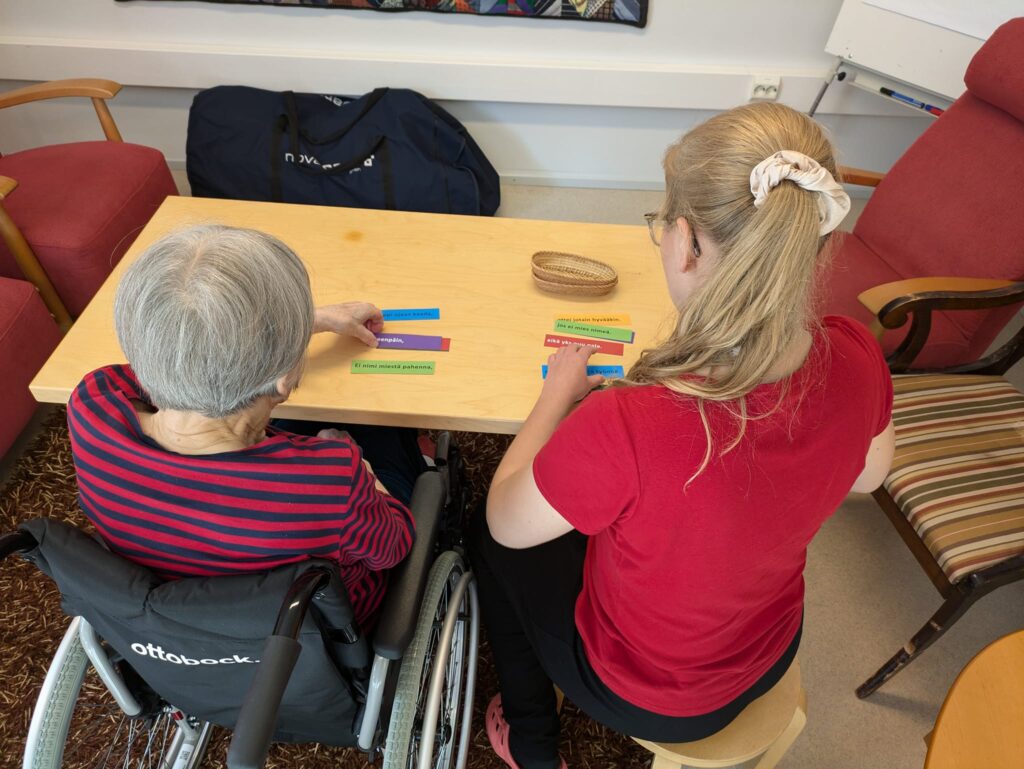
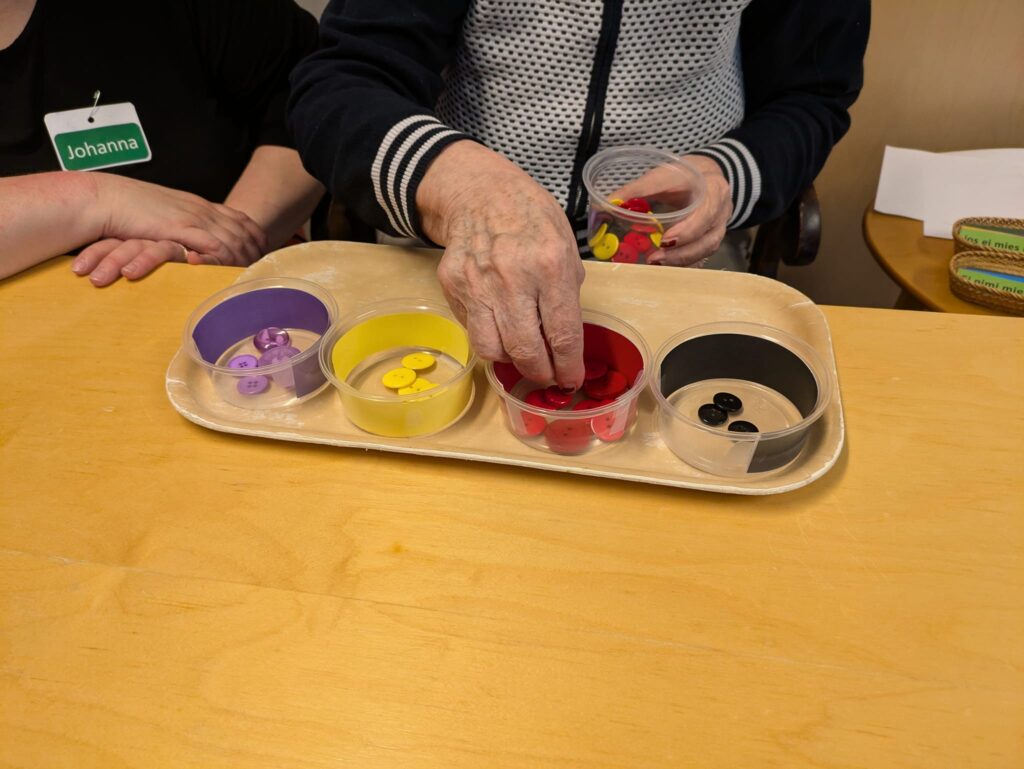
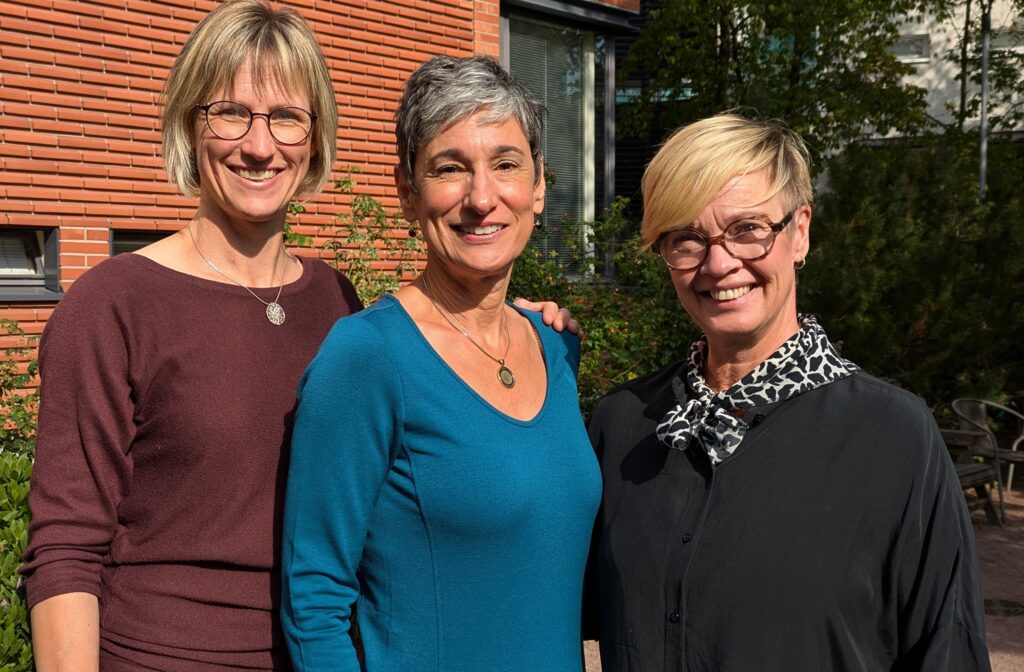
Here is some feedback we received from the staff:
- “I gained an even deeper understanding of the importance of Montessori and how it can become even more visible in daily life.”
- “It was a rewarding and instructive week, and I consider it a great privilege to be involved in implementing Montessori in the daily lives of older people.”
- “I realized that we already have a lot of good things going on, valuing the residents, knowing the residents well, being safe people for them, and how the little things do matter.”
- “It was a really intense and interesting week with a lot of insights and ideas.”
Free Community Lecture
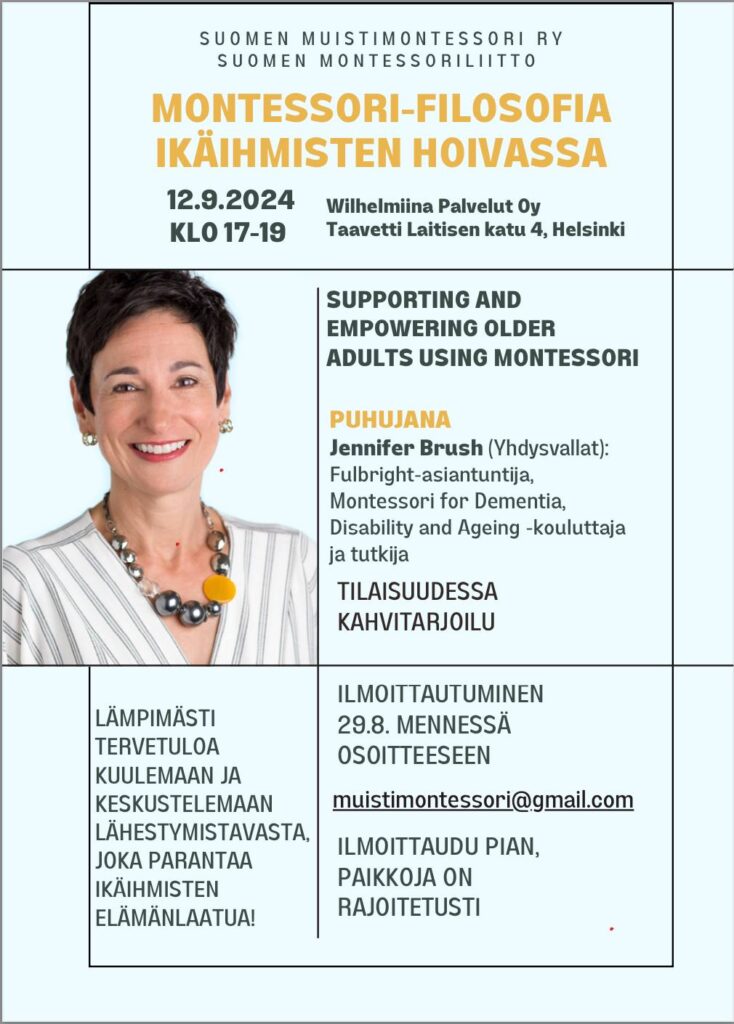
MuistiMontessori and Wilhemiina hosted a free workshop open the public as an opportunity for Montessori teachers, local families and spouses of people with dementia to learn more about this life affirming approach to aging. I provided an overview of the components of a Montessori community for elders, including many photos of innovative supportive environments that support independence. There was a rich discussion with many questions from participants, some were actually moved to tears, with one woman stating, “this is how I want to be able to live.”
Collaboration Lautasarra Senioritola
The second community in Helsinki, Lautasarra senioritola, is an independent living senior housing apartment building that provides meals and care assistance as needed to older adults. Three meals a day are provided to all residents. Only three of the staff at this community were already aware of the Montessori philosophy for elders, so it wasn’t an approach to care that had been integrated in their culture yet. Throughout the week I provided a series of classes that introduced this new concept to the care staff and helped them to create an implementation action plan for the next 9-12 months. I was joined part of the week by Henna Jalovaara, Occupational Therapist at Wilhelmiina, and founding member of MuistiMontessori. Henna shared lessons learned through their implementation journey and shared successful practices for collaborating with and engaging elders. I look forward to continuing to provide support for the staff as they take the first steps to creating a supportive environment and engaging the elders in more cognitively stimulating daily life activities of their choice.
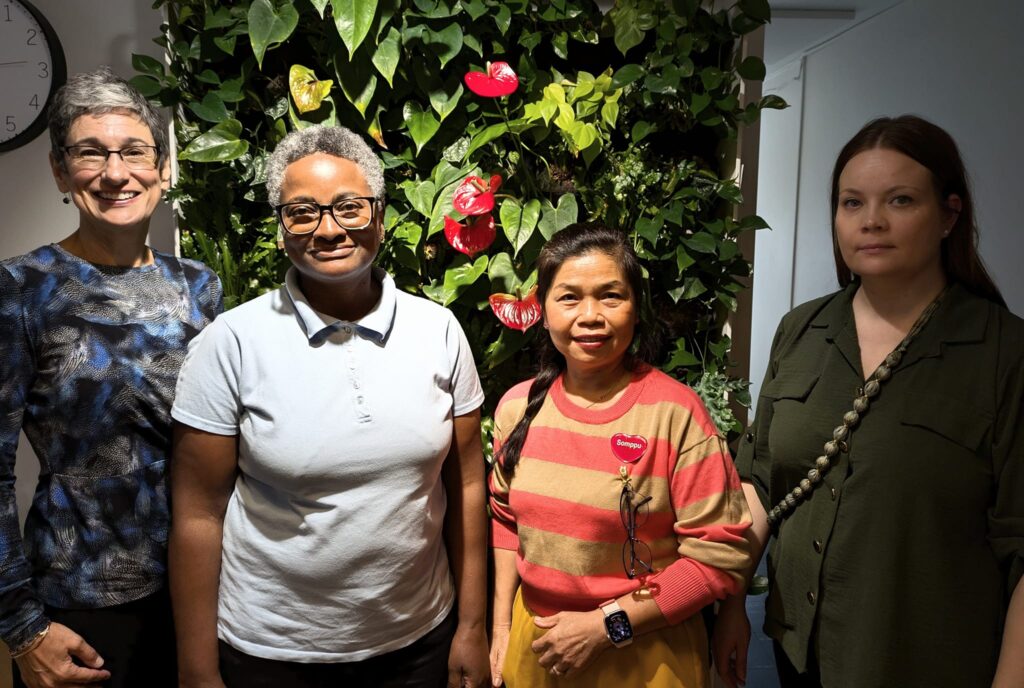
Although this project took place in Helsinki, Finland, every country in the world is experiencing growth in both the size and the proportion of older persons in the population. Many countries are experiencing a crisis because of this as there are fewer people of working age and older people living longer yet requiring care. It's time for a shift in in how we think, feel and act towards aging. Teaching others about the Montessori philosophy for elders gives me an opportunity to help develop communities that foster the abilities of older people. It’s an effective way of delivering person-centered and relationship-based care responsive to older people. I truly appreciate this opportunity through the Fulbright Specialist program to collaborate and learn from others during my experience in Finland.

